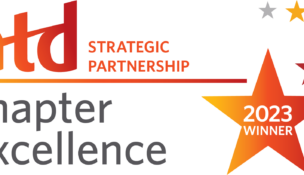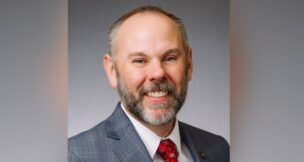Veterans bring distinctive skill set to workforce
Staff //September 12, 2019//
In the next three decades, the U.S. Department of Veterans Affairs anticipates the population of female veterans in South Carolina will grow from its current number of nearly 43,000 to as high as 66,000 by 2045. Accounting for a little more than 10% of the state’s veteran’s population, those women are and will continue to be a crucial cog in the state’s workforce.
Female veterans face challenges different from their male counterparts when entering the civilian workforce, said Maureen Casey, COO of the Institute for Veterans and Military Families at Syracuse University. Women are more likely to be single parents, Casey said, which can be challenging as they look for child care in addition to a job.
Casey said it’s important for communities to help veterans, especially women, transition to the civilian workforce. It’s a challenge that’s especially vital in South Carolina, home to Fort Jackson, Joint Base Charleston and Shaw Air Force Base, among other military installations, and a destination state for veterans.
“We know that when veterans transition out of the military, they transition to communities,” Casey said. “They don’t transition to a federal agency. And so we have noted through our research that this ability to access and navigate care services and benefits is in fact one of the greatest challenges faced by our veterans.”
In July, Casey testified before the Committee on Veterans Affairs’ subcommittee on economic opportunity regarding the economic well-being of female veterans.
Casey said it’s important for service providers to understand the needs of veterans, especially women. On average, she said it takes women about three months longer than their male counterparts to find a job once they’ve been discharged. Although the institute has not done any studies to pinpoint a reason why, Casey said for now, the organization is relying on anecdotal evidence.
“We’re just starting to dig into that ourselves, because it really is an anomaly,” she said.
It didn’t take long for Air Force Staff Sgt. Anna Perry to find a job back home near Irmo. She rushed home to interview with Colonial Life the day before Thanksgiving in 2017 and started her civilian career as an administrative assistant the following January, less than two months after being discharged.
“I think the onboarding process here really is helpful,” she said. “I felt like from the moment I was hired, I received a lot of support and a lot of assistance just in getting myself ready for coming to work. And I think that’s really helpful. When you’re getting out of the military, it’s kind of scary, because you’re leaving the security blanket that you had for however long you’ve been in.”
Employers know veterans come to them with technical skills, discipline habits and a work ethic, though Perry said it took her some time to get used to working a nine-to-five, Monday-Friday schedule.
Former Pfc. Sierrea Brown took a little longer to find her career. She got out of the U.S. Army during the Great Recession, and after working her way up to manager at a payday loan company, she decided to get a business degree at South University. After that, she also went to work at Colonial Life, as a billing coordinator.
Brown said after years of facing potentially life-threatening situations, civilian work is comparatively easy.
“A lot of things that you would see when you’re deployed — that is hard, and it stays with you,” she said. “(Now) you just come to work and you sit at your desk, and you have a light conversation. It’s not a hard place to be.”
Brown said her military service fostered characteristics that pay off in her civilian job.
“Our work ethic and having our perspective on what really matters in the world, is something that’s of great value to employers,” she said. “You’re not going to have a lot of calling out or ‘I can’t come in because …’ or complaining about stuff. … We’re used to getting up early and putting in the work even when we don’t feel great.”
Because of the military presence in South Carolina, employers here such as Colonial Life understand the value of veterans looking for their second act.
“We actively recruit veterans for our home office and for our field,” said Tim Arnold, president and CEO of Columbia-based Colonial Life. The supplemental insurance company has about 1,400 employees who are veterans, accounting for about 10% of its workforce.
The company also recruits veterans’ spouses and has a veterans’ resource group.
“Over the last few years, we’ve contracted almost 1,000 new veterans into our field organization,” Arnold said.
Brown said she encourages her former military colleagues to apply to Colonial Life because the job skills they have translate well. She said it’s “an amazing place to work.”
Perry is also satisfied with her civilian job.
“I’m glad that I was able to get this job, and I don’t see myself going anywhere for a long time,” Perry said. “I hope to move within the company, but at this moment, my plans are to stay with Colonial Life.”
Casey said employers should make an effort to understand what veterans transitioning to civilian work can offer companies.
“Certain jobs in the military — what do they entail? How many people does it involve that they supervise? What is the value of the equipment that they’re responsible for?” she said. “Understand how to translate that military experience into the skills and the needs of their employment.”
She pointed out that the Army and the Air Force offer programs to help connect local employers with soon-to-be veterans or military spouses.
“If we take a little bit of extra time on the front end to understand the talent, the dividends in the long term are significant,” she said. “If you think about the fact that our military are trained to do new jobs all the time, they’re very quick learners. They are adaptable, in addition to all the leadership skills.”
Brown said veterans are well worth the investment.
“The biggest thing that you’re going to get from a veteran is that amazing work ethic,” she said. “We work hard day in and day out, and once you sell us on your vision and we align with you, that’s it. We’re loyal. We don’t job hop. We don’t complain. We’re probably the most loyal group of people that you could possibly hire.”
This article first appeared in the Sept. 9 print edition of the Columbia Regional Business Report.
S













